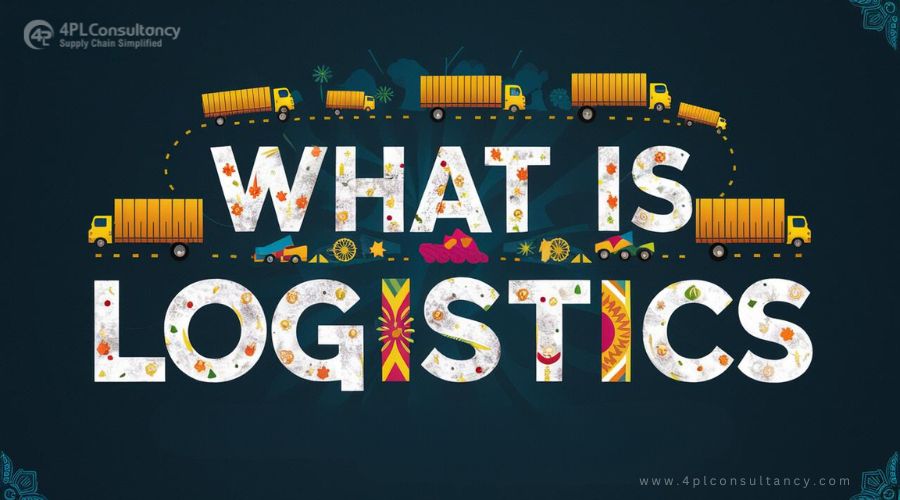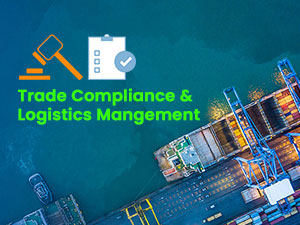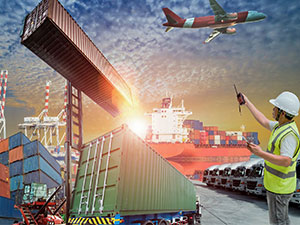Blog Details

What is Logistics? An Overview, Scope in India, and Future Prospects
Introduction
Logistics is the lifeline of business operations, playing a critical role in moving goods, services, and information across supply chains. At its core, logistics involves the planning, execution, and management of the movement of goods from the point of origin to the point of consumption. This process is far more complex than simply transporting products from one place to another. It requires careful coordination of various activities, including transportation, warehousing, inventory management, and delivery optimization.
Understanding logistics is essential for businesses that rely on efficient supply chains. It’s not limited to retailers and manufacturers logistics impacts industries like healthcare, technology, and even entertainment. Its primary objective is to deliver the right product, at the right time, and at the right place—consistently meeting customer expectations and minimizing operational costs.
Logistics in Business Management
Logistics plays a significant role in the success of any business by ensuring the smooth flow of products and services across the supply chain. The discipline encompasses a variety of activities, including procurement, warehousing, transportation, and inventory control. It is closely aligned with supply chain management but focuses more specifically on the day-to-day execution of supply chain tasks.
The importance of logistics cannot be overstated. Efficient logistics management reduces costs, speeds up delivery times, and enhances customer satisfaction. Businesses that optimize their logistics can gain a significant competitive edge by reducing lead times, improving order fulfillment, and lowering operational costs. Logistics managers work to maximize efficiency by balancing the speed of delivery with the costs involved. They ensure the flow of materials through the entire supply chain, from procurement to final delivery, while constantly striving to identify areas for improvement.
Logistics also impacts various business functions, including marketing, sales, and customer service. For instance, companies with efficient logistics can offer faster delivery options, which can be a major selling point for consumers, particularly in the e-commerce sector. Furthermore, proper logistics management allows businesses to better manage their inventories, reduce storage costs, and avoid bottlenecks in production.
Scope of Logistics in India
India’s logistics sector is undergoing rapid transformation, emerging as one of the most promising industries for both employment and economic growth. As of 2024, the industry is valued at approximately $250 billion and is expected to grow to $380 billion by 2025. The growth is driven by several factors, including e-commerce expansion, government initiatives, and infrastructure development.
The Indian government has launched various initiatives, such as the Gati Shakti program, which aims to enhance infrastructure and streamline logistics operations across the country. The introduction of Goods and Services Tax (GST) has also simplified taxation and improved the movement of goods across state lines, reducing delays and lowering logistics costs.
In addition, India's growing urbanization and rising consumer demand have created a surge in the need for efficient logistics services. Cities like Mumbai, Delhi, and Bangalore have become hubs for logistics activity, thanks to their robust infrastructure and proximity to major ports and airports.
The logistics sector in India encompasses various sub-sectors, such as transportation, warehousing, courier services, freight forwarding, and last-mile delivery. With the growth of online shopping, logistics companies have had to adapt to new demands for speedier deliveries and increased transparency in the shipping process. The sector is increasingly adopting digital technologies, including AI-driven logistics management systems and automated warehousing solutions, to meet these evolving demands.
Current Salaries in Logistics
Logistics in India offers attractive career opportunities, with salaries varying based on experience, location, and job function. Entry-level logistics professionals typically earn between ₹3-6 lakhs per year. Those with mid-level experience, particularly in managerial roles, can expect salaries ranging from ₹7-12 lakhs per annum.
For senior professionals in leadership positions, salaries can exceed ₹20 lakhs annually. These roles often require substantial experience in supply chain management, along with expertise in logistics technology and global operations. The demand for logistics professionals has been steadily rising due to the rapid expansion of e-commerce and increased reliance on automated logistics systems.
Future Prospects of Logistics in India
The future of logistics in India looks extremely promising, driven by increasing investments in technology, infrastructure upgrades, and a shift toward more sustainable practices. The rise of green logistics is one key trend, with companies focusing on reducing their carbon footprint by utilizing electric vehicles, improving fuel efficiency, and employing sustainable packaging solutions. This emphasis on sustainability will lead to new job opportunities in the logistics industry as companies seek experts in environmentally friendly logistics operations.
Additionally, automation and artificial intelligence will continue to play a significant role in the future of logistics. Technologies such as autonomous delivery vehicles, drones, and automated warehouses are being tested and implemented, leading to a more streamlined and efficient supply chain. Logistics companies that invest in these technologies are likely to see improvements in speed, accuracy, and overall customer satisfaction.
In the coming years, the globalization of supply chains will require logistics professionals to have a more comprehensive understanding of international trade, regulations, and technology. The industry's future is bright for those willing to embrace new technologies and develop their skills in supply chain optimization and global logistics management.
Conclusion
In conclusion, the logistics industry in India stands at the cusp of a technological revolution with immense growth potential. The integration of automation, AI, and sustainability practices will define the sector's future. As logistics continues to evolve, professionals with skills in global logistics management and supply chain optimization will be in high demand. By staying ahead of the curve and embracing these changes, the Indian logistics sector is well on its way to becoming a global leader in efficient and sustainable logistics solutions.
At 4PL Consultancy, we are dedicated to guiding businesses through these transformations with our expert insights and tailored solutions. Additionally, 4PL Academy offers cutting-edge courses designed to equip professionals with the necessary skills to excel in this dynamic field.
Join us to stay ahead in the logistics revolution and unlock new opportunities for success.
4PL Consultancy has a team of experts in Tariff classifications of wide variety of Product lines – Medical spares, Aerospace, Radiation Oncology machines & spares etc.





